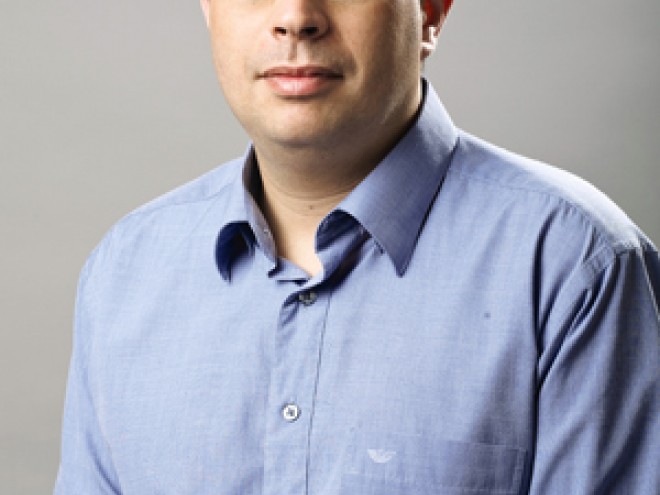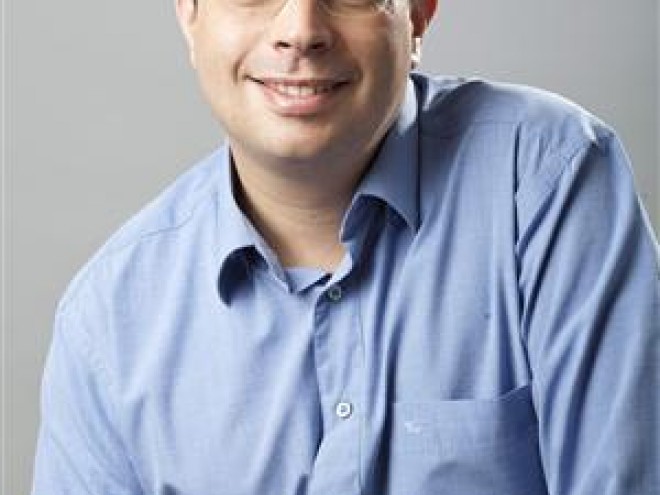
Elise Cooper recently spoke with Daniel Silva about the newest book in his Gabriel Allon series, The Heist, which was published in July 2014 by Harper.
Elise Cooper: Why do you think Gabriel Allon is so popular?
Daniel Silva: He is a character with two distinct sides, as an art restorer and an Israeli intelligence agent. He resonates with people because he is a decent human being who is asked to do some dirty jobs over the years. That combination of attributes allows me to craft my stories in a way that makes them very different from most spy novels. Actually, I had to be talked into writing him as a series character; I was hesitant because I was deeply concerned about the anti-Israeli sentiment and anti-Semitism in the world. Thankfully I was proven wrong, and I think we all are glad he is out there.
EC: You have a very powerful quote by Leah, Gabriel’s first wife: “The snow absolves Vienna of its sins. The snow falls on Vienna while the missiles rain down on Tel Aviv.” Can you explain this observation?
DS: That is something Leah said in the very first novel, before she was severely wounded in a bombing. Here she was in Vienna, the country that produced Hitler, the Nazi leadership, and the Nazi machinery. She looked out and saw a beautiful snowy night in Vienna while on the TV she saw missiles raining down on Tel Aviv during the first Gulf War.
EC: Does Leah symbolize the horrors of terrorism?
DS: We must remember that for every one of the attacks during the Intifada there were survivors who lost limbs, eyes, and/or had been badly burned. Leah represents something very important: Gabriel is an art restorer and can fix just about anything except her. It is very painful for him that he can never make her “right.”
EC: Gabriel also seems to want to redeem Christopher Keller, a former British commando turned professional assassin.
DS: They are a classic pairing: two tough, funny guys who are always trying to one-up each other. Gabriel tries to restore more than paintings — as I commented about Leah, he wants to restore people. He does not believe it morally right or appropriate for Keller to kill people for money, even if most of the time those people deserve to die.
EC: Your last few books have plots that go beyond the terrorist angle. Why?
DS: Last year in The English Girl Gabriel undertook a search for a kidnapped British woman. In the previous book to that he was investigating an apparent death by suicide at the Vatican. This is the beauty of the Gabriel character: I can write him doing all sorts of things.
EC: In The Heist you have a lot about art history. Why?
DS: The first half of the story is very much an art book and deals with the famous missing painting by Caravaggio. I thought it would be interesting to discuss who he is, why he painted the way he did, and what his life was like. I hope readers found him to be a compelling, fascinating, and amazing character. I’ve wanted to write about the missing Caravaggio for many years. The loss of the painting leaves a hole that can never be filled.
EC: You refer to a Middle Eastern despot indirectly stealing a lot of art. Why did you decide to write about this topic?
DS: The Arab Awakening showed the greed of the Arab dictators. Hosni Mubarak, Muammar Kaddafi, and now the Syrian government have accumulated a huge amount of assets. I learned that finding these assets isn’t really difficult, but tying them to a ruler is very tricky. I have also been intrigued and angered that thieves have made off with masterpieces. I think there has been a tendency over the years to dismiss art crime as something romantic or a sort of a gentlemen’s game; the truth is, art crime is a big business. These stolen paintings can be used as a form of underworld cash.
EC: If I were to interview Gabriel, what would he say is the greatest danger to Israel today?
DS: In its early days Israel had to face hostile Arab nation states. What we have now is what he would call AlQaedastan, a non-state actor and a belt of Sunni extremism. If they get Weapons of Mass Destruction they could inflict devastating blows to Israel. Gabriel is really worried about it because he feels these groups will eventually turn their attention to Israel, and is very pessimistic about ever having peace.
EC: What would Ari Shamron, the legendary former chief of Israeli intelligence, say is the gravest danger to Israel?
DS: He is very worried about Iran. Privately he thought Israel could cripple Iran with a nuclear strike. He probably would have recommended it to the Prime Minister. He lost his family and lived through one Holocaust and is not anxious to see another. He fears his life’s work of protecting the State of Israel is in grave danger.
EC: What would you like the reader to get out of The Heist?
DS: I’d like readers to be entertained and learn a little something along the way. I have always been loathe to say what the reader should take away from my work; what is unique about reading is that we see every character and every scene through the prism of our own little theatre in our head. It is private. Books touch each of us in a unique way. I don’t want to intrude on that.



